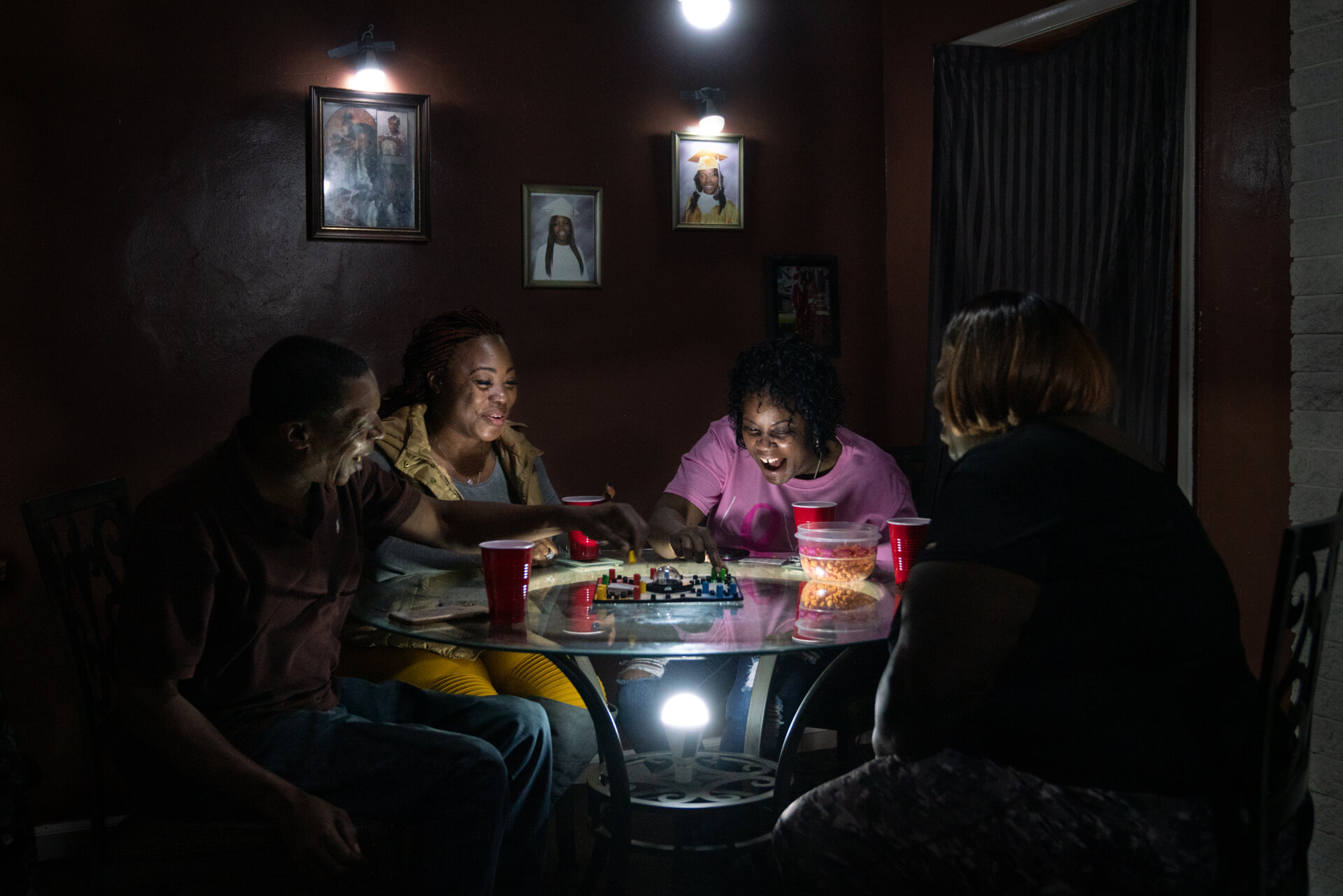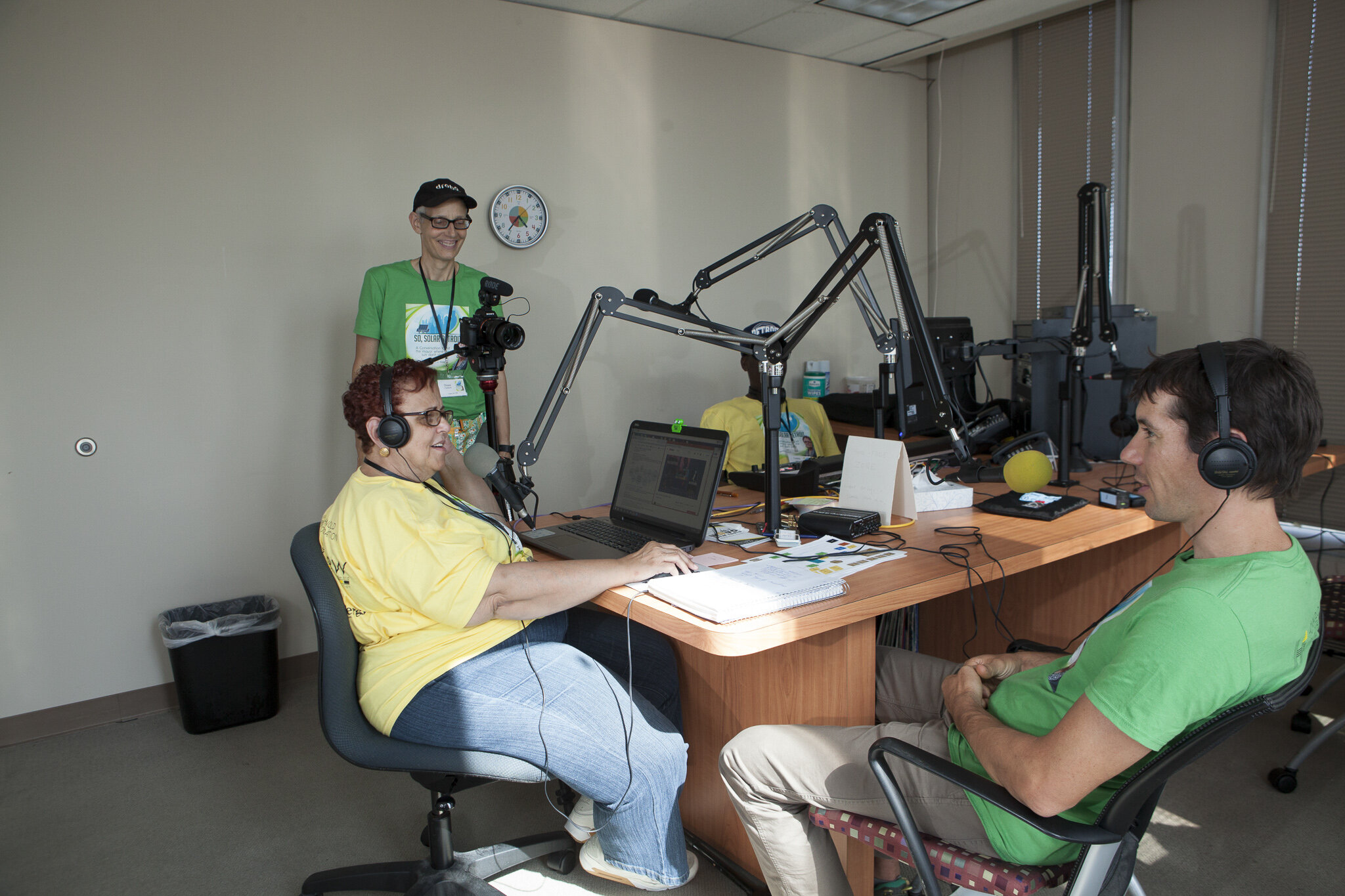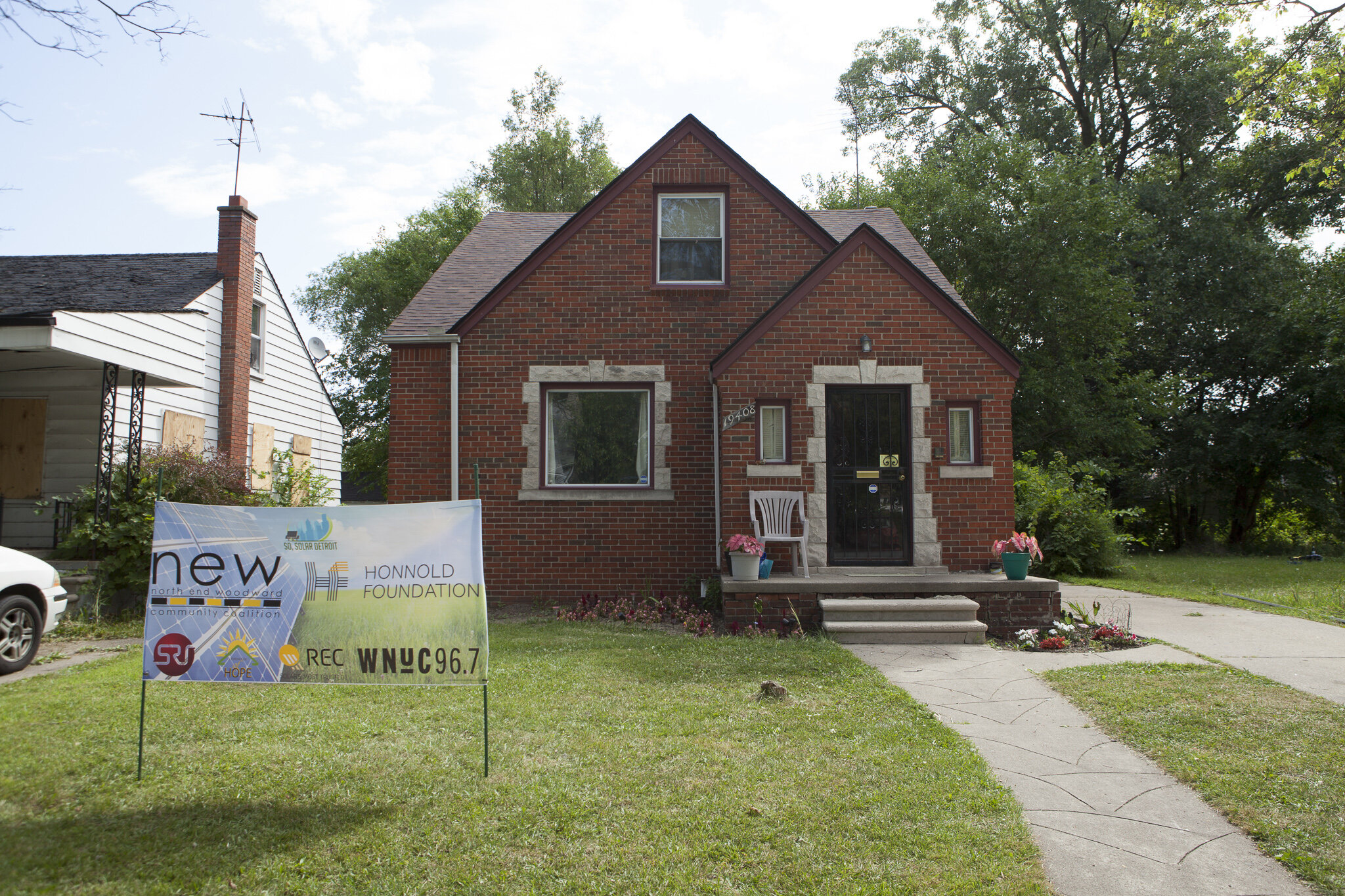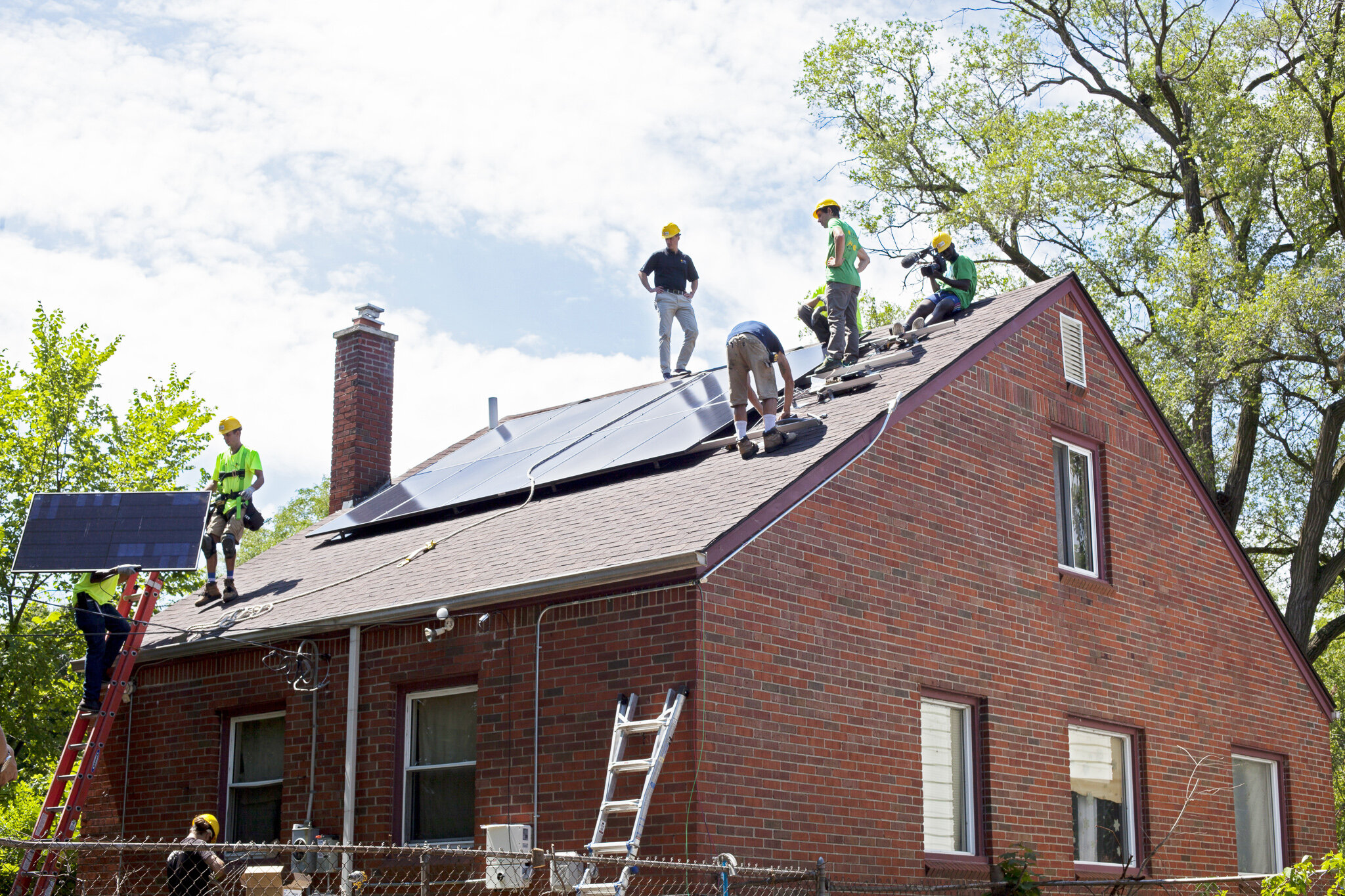In 2019, the Honnold Foundation team visited Detroit to meet with Reverend Joan Ross, the Executive Director of North End Woodward Community Coalition (NEWCC), a nonprofit dedicated to addressing systemic injustice in Detroit.
Recently, we caught up with Reverend Ross to talk about NEWCC’s response to COVID-19 and learn from her experience as a community leader.
As COVID-19 spread through Detroit, Reverend Ross knew that longstanding systemic injustices including ongoing water shutoffs and poor air quality would mean that her community would be hit particularly hard. She asked herself a question: “How do we address these inequities with the knowledge, experience, and skill we already bring to the table?”
In addition to providing solar energy to Detroit families, NEWCC’s multifaceted work includes expanding internet access throughout Detroit’s neighborhoods. Detroit is home to one of the most significant digital divides in the country. An estimated 45% of Detroiters lack access to the internet outside of smartphones, and 70% of Detroit students don’t have access to the internet in their homes. In 2019, NEWCC installed eight solar powered charging stations to “help address concerns for utility justice, lack of internet access, and environmental impact using our love for solar,” explains Rev. Ross.
“During the pandemic, we’ve updated and expanded solar powered charging stations throughout the city. The charging stations also supply WiFi, so people can access the internet, whether they’re social distancing on the sidewalk or are able to drive up and get internet from the safety of a car.”
Reliable internet also empowers community members to tell their own stories— and the stories of Detroit. “We want to teach people to be creators of content, not just users of email. Everything that has come out of Detroit since I’ve been here was somebody else’s invention of Detroit. [...] Detroit’s comeback just isn’t that simple. While there has been plenty of investment in the city’s core, not much seems to have changed in the suburbs.”
Rev. Ross hopes that increased technology access and training will create opportunities for residents from Detroit’s still struggling neighborhoods to tell their own stories, increasing national visibility and catalyzing change. Rev. Ross worries that recent national media coverage hasn’t emphasized how the city’s development efforts are mostly temporary, and have often focused on specific neighborhoods who aren’t truly in the greatest need. And without a laser focus on creating permanent change, basic inequality in Detroit is getting worse.
For example, local utility companies have raised energy bills by another 4.5% on top of a 9% increase last year — all in the midst of Detroit’s ongoing struggles amidst the pandemic. Meanwhile, an estimated 141,000 Detroit households have been disconnected from water since 2014. In March, Governor Gretchen Whitmer announced plans to temporarily reconnect residents’ water bills for 30 days, but many reported that the assistance never came. “There’s a lot of these [environmental] conditions where it’s not just one factor. [...] People don’t have running water, so they’re not able to wash their hands. They don’t even have toilets functioning in their house without water,” explains Rev. Ross.
The knowledge that these challenges will continue long after the pandemic ends makes Rev. Ross’s work all the more important. NEWCC continues to expand infrastructure that creates internet access, affordable housing, and clean air for all Detroiters — one home, one internet antenna, and one solar panel at a time. Rev. Ross and the Honnold Foundation share a core belief that small steps can spark big changes— in Detroit and around the world.
The Honnold Foundation is proud to partner with NEWCC in building a solar powered Detroit. We invite you to join us in supporting NEWCC and future partners by making a gift today.
Photos by Rubén Salgado Escudero and Manda Moran
Special thanks to REC Group





